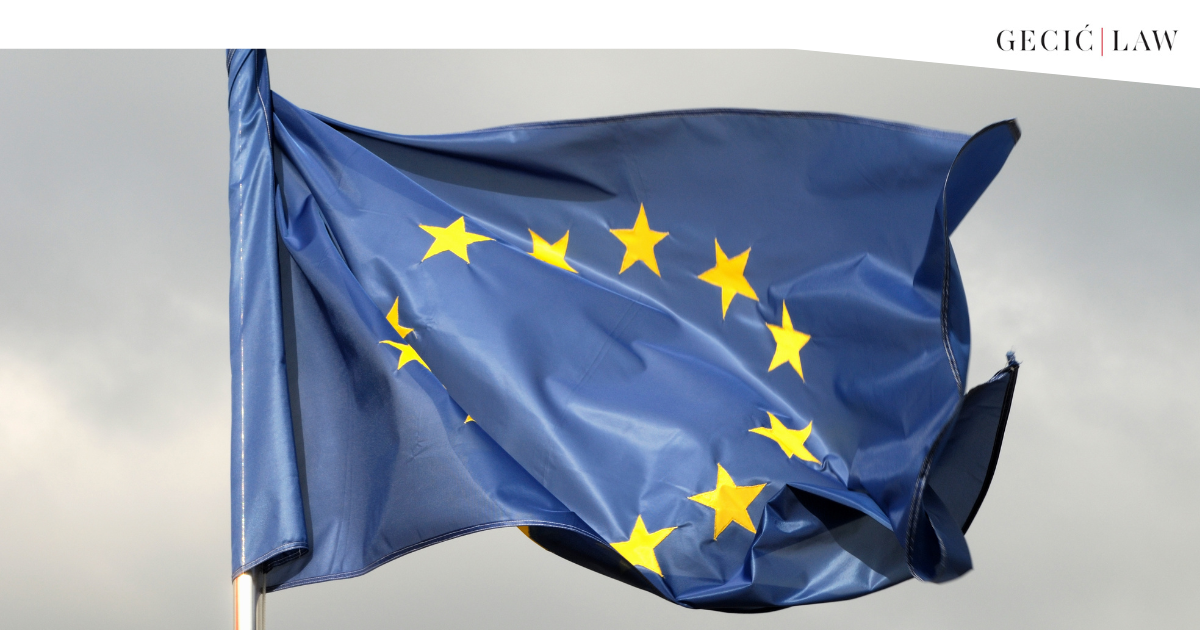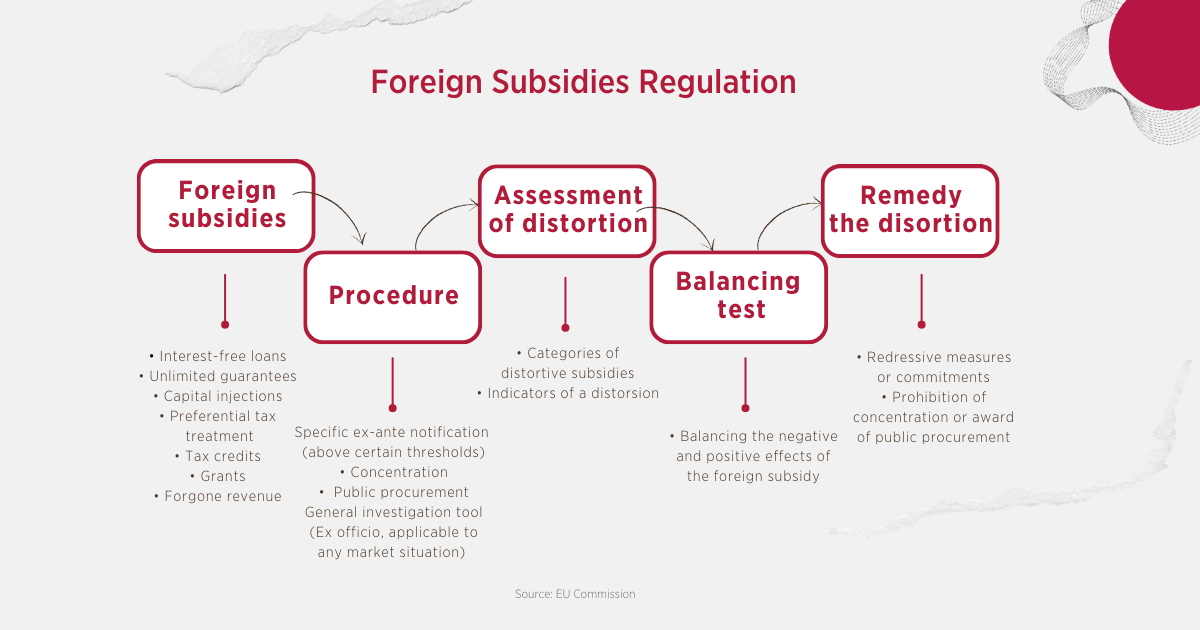

As anticipated for some time in the previous months, while having been agreed upon between the EU institutions, the Foreign Subsidies Regulation (Regulation) finally saw the light of day on January 12, 2023. Its application will commence on July 12, 2023.
The Regulation offers new tools for the European Commission (Commission) to investigate financial contributions from non-EU countries to companies operating in the EU to prevent distortions in the internal market. This specific State aid regime provides for an extended application of EU rules and the Commission’s competencies beyond the EU borders.
One of the notable features is that the Commission is entitled to look into the subsidies retroactively five years before the date of the Regulation’s application, i.e., July 12, 2018. Said competence of the Commission may be exercised only if the distortive effects of the subsidy exist at the time of its review.
Per Regulation, the subsidies can be both direct and indirect, in all forms (tax benefits, loan guarantees, and other types of financial assistance), and provided to companies regardless of their size, including both large multinationals and small and medium-sized enterprises (SMEs).
The Commission is entitled to have a closer look into all economic activities of the companies operating in the EU, such as concentrations and public procurement procedures, but this also generally includes all other market situations. Arguably, the latter tool provides a broad spectrum of the Commission’s discretion, given that “other market situations” can encompass many cases.
Companies shall notify the Commission of any concentration (mergers, acquisitions, or joint ventures) that involve a financial contribution from a third country, provided that:
(i) at least one of the merging parties, the target company, or the joint venture is established in the EU and generates an aggregate turnover of at least EUR 500 million in the EU, and
(ii) combined aggregate foreign financial contribution made by the third country amounts to at least EUR 50 million in the three preceding financial years.
Companies shall notify the Commission of their participation in public procurement procedures that involve a financial contribution from a third country that could be unduly advantageous for a public procurement bidder, where:
(i) the estimated contract value is at least EUR 250 million, and
(ii) the foreign financial contribution is at least EUR 4 million per non-EU country in the three financial years before the notification.
Regarding all other market situations, the Commission can commence investigations on its own (ex-officio) if it suspects they involve distortive foreign subsidies.
This tool contains an extraterritorial element, thus enabling the Commission to conduct inspections in the EU and third countries.
However, such inspections would have to be substantiated with the prior consent of the concerned undertaking and the relevant government.
The Commission shall perform a preliminary review by sending requests for information and conducting inspections with the subject companies. An in-depth investigation will be open if it finds sufficient indications for a distortive foreign subsidy.
When conducting the in-depth investigation, if there is evidence that the foreign subsidy distorts the internal market, the Commission may decide to impose redressive measures or commitments. If there is a risk of severe and irreparable damage to competition on the internal market, the Commission may impose interim measures.
The Regulation introduces a “balancing test” to assess whether the benefits of a foreign subsidy outweigh the potential negative impacts on the EU market and avoid unjustified discrimination. The Commission is to examine broader positive effects vis-à-vis relevant policy objectives, especially those of the EU.
The decision-making of the Commission may be as follows:
(i) no objection decision – in case the foreign subsidies do not cause any distortion in the EU market, or distortion is outweighed by the positive effects, due to which the Commission will take no further action;
(ii) commitments/redressive measures decision – in case there are specific distortive effects in the internal market caused by the third country’s subsidy, the Commission may accept the commitments offered by the undertaking concerned if any (commitments decision), or may adopt the redressive measures to remedy the distortion (redressive measures decision);
(iii) decision prohibiting a concentration or the award of the contract – if commitments or redressive measures cannot adequately address the distortive effects, the Commission will adopt a decision prohibiting the engagement or the award of the contract.
Should the companies fail to submit a prior notification, or they provide incorrect or misleading information, the Commission may impose, respectively:
(i) fines up to 10% of the undertakings’ worldwide aggregate turnover;
(ii) periodic penalty payments not exceeding 5% of the average daily aggregate worldwide turnover for infringements.
The Commission announced that it would publish a draft of Implementing Regulation in the coming weeks with detailed procedural aspects that will be open for comments.

Authors: Ivana Stojanović-Raišić, Marko Đorđević